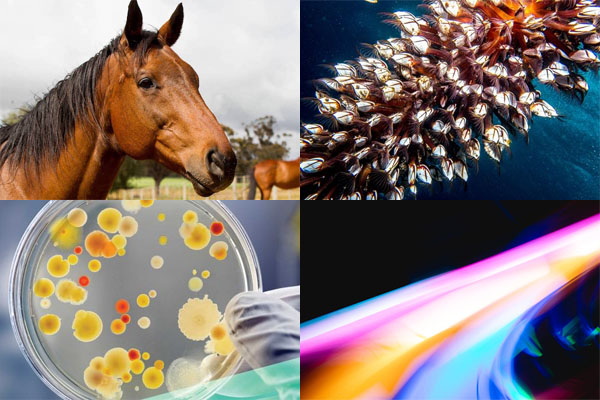Research projects for PhD and Masters by Research students
The University's Graduate Research Opportunity Tool is a directory of PhD and Masters by Research projects – search by course, field of research or location to find a research project that you're excited to join.

Research projects for PhD, Honours and Undergraduate Coursework students
The following list outlines the staff research interests and project offerings for prospective PhD, Honours and undergraduate coursework students this year. Some of them may be supported by grants; contact the staff member involved to find out more.
Animal Welfare Science Centre (AWSC)
| Project Leaders | Campus | Project Name |
|---|---|---|
| Dr Carolina Munoz | Parkville |
|
| Dr Lauren Hemsworth | Parkville |
|
| Project Leaders | Campus | Project Name |
|---|---|---|
| Prof Glenn Browning | Parkville |
|
| Prof Joanne Devlin | Parkville |
|
| Prof Amir Noormohammadi | Werribee |
|
| Prof Mark Stevenson | Parkville |
|
| A/Prof Helen Billman-Jacobe | Parkville |
|
| A/Prof Simon Firestone | Parkville |
|
| Dr Karim Mardani | Parkville |
|
| Dr Laura Hardefeldt | Parkville |
|
| Dr Alistair Legione | Parkville |
|
| Dr Sandra Steele | Parkville |
|
| Dr Kelly Tivendale | Parkville |
|
| Dr Paola Vaz | Parkville |
|
| Dr Nadeeka Wawegama | Parkville |
|
| Dr Anke Wiethoelter | Parkville |
|
Equine Medicine and Surgery
| Project Leaders | Campus | Project Name |
|---|---|---|
| Prof Simon Bailey | Parkville |
|
| A/Prof Jennifer Charles | Werribee |
|
| A/Prof Peta Hitchens | Werribee |
|
The MacKinnon Project
| Project Leaders | Campus | Project Name |
|---|---|---|
| Werribee |
|
One Health Research Group
| Project Leaders | Campus | Project Name |
|---|---|---|
| Prof Lee Skerratt A/Prof Lee Berger | Werribee |
|
| Dr Laura Brannelly | Werribee |
|
| Dr Tiffany Kosch | Werribee |
|
| Dr Jasmin Hufschmid | Werribee |
|
| Dr Franciscus Scheelings | Werribee |
|
Parasitology
| Project Leaders | Campus | Project Name |
|---|---|---|
| Prof Abdul Jabbar | Werribee |
|
| Prof Robin Gasser | Parkville |
|
| Prof Robin Gasser A/Prof Aaron Jex | Parkville |
|
| A/Prof Neil Young Prof Robin Gasser | Parkville |
|
| A/Prof Neil Young | Parkville |
|
Pathology
| Project Leaders | Campus | Project Name |
|---|---|---|
| Dr Smitha Georgy | Werribee |
|
Reproduction
| Project Leaders | Campus | Project Name |
|---|---|---|
| Dr Christina Marth | Werribee |
|